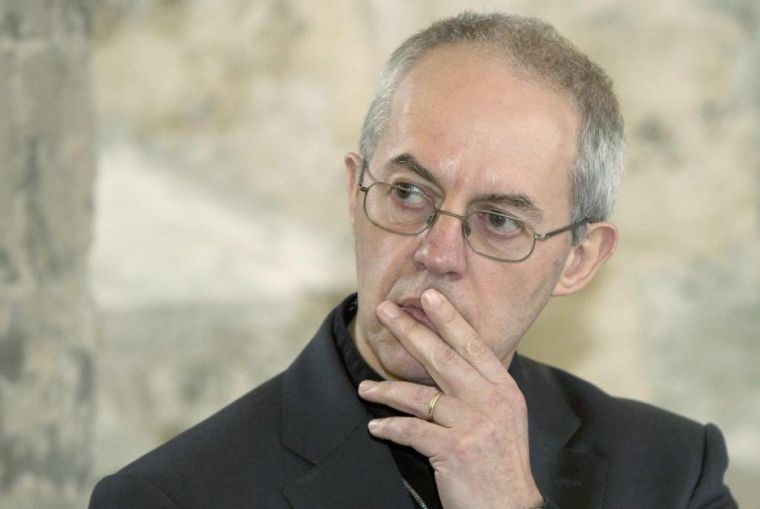Justin Welby apologises to abuse survivor; bishops accuse CofE's insurer of 'horse trading' on settlements
The Archbishop of Canterbury Justin Welby has apologised to a clerical sexual abuse survivor over the Church of England's response to his claims. Three CofE bishops have condemned the Church's insurance company for what it called 'horse trading' over settlements for abuse survivors - though the insurer has challenged the allegation.
In a letter to the abuse survivor known only as Gilo, or Joe, Welby wrote: 'I am writing to say how profoundly sorry I am for all the abuse you have suffered ... I am shocked to hear of what has happened to you and the impact over so many years.'

Gilo had written 17 letters to the Archbishop imploring the CofE to recognise and respond to his claims, but had only received one response - from a clerk who offered prayers for Gilo.
'I am sorry that the way your correspondence was handled has not been helpful to you, and has not been to the standard you would expect', Welby wrote, according to The Guardian. He added: 'There are lessons to learn and I am keen that we learn them and make any changes necessary.'
In a September letter released today, the Bishop of Durham, the Rt Rev Paul Butler, the Bishop at Lambeth, the Rt Rev Tim Thornton and the Bishop of Buckingham, Rt Rev Alan Wilson addressed their 'concern' to the CofE's insurer, Ecclesiastical Insurance Group (EIG) about alleged 'horse trading' over settlements for abuse claims with little pastoral concern for survivors themselves, directly referring to Gilo's case.
Gilo, who has vocally criticised the EIG and its relationship to the CofE, said he received a £35,000 settlement but that his pastoral support was then cut off on the insurers' recommendation. EIG have flatly denied Gilo's allegation.
The bishops suggested to EIG that its settlement with Gilo should be revisited, saying his suffering post-abuse 'has been lifelong and continues. It has seriously impacted his health and wellbeing. This in turn has affected his work and finances.'
In a statement today the bishops said that what clearly remain as 'serious challenges' for the CofE and its response to abuse survivors 'need to be faced honestly and squarely'.
Gilo told The Guardian that it was 'a courageous and bold move by these bishops to finally grasp a powerful corporate nettle in such a clear way.
'They are right. The settlement process is a degrading, demeaning horse trade in which the insurer holds all the cards, and can effectively hold a gun against the heads of survivors and our own lawyers. It is a skewered and broken system that doesn't serve justice. The church is finally recognising the cost of impact.'
An independent review of Gilo's case, the Elliott Review, last year gave a damning critique of the CofE and the office of Justin Welby's handling of the case.
In a Friday statement, EIG said it had been misrepresented by the bishops' letter and called for clarification, adding that it saw no basis for reviewing Gilo's settlement.
It said: 'We have profound sympathy for the victims and survivors of the horrendous abuse carried out by members of the clergy, and welcome the Church of England's emphasis on putting survivors front and centre when making reparations for that abuse.
'As independent insurers, we are not responsible for the abuse perpetrated by those for whom the Church is accountable. Our role is to handle insured claims for financial compensation fairly for these acts of abuse. In doing so, our approach is to treat all survivors with sensitivity, compassion and respect'.
EIG added: 'We simply do not recognise the description in the Bishops' letter of our actions either in Gilo's case, or in our general handling of abuse claims. Unfortunately, while we welcome the broad thrust of the Elliott Review on Gilo's case, it is completely wrong about our conduct. We have repeatedly stated that we have documentary proof its conclusions about us are deeply flawed.'
EIG's full letter in response to the bishops can be read here.











